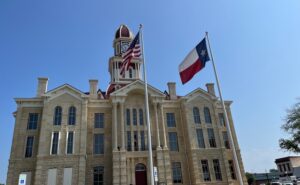Fort Yates News

Fort Yates, a place steeped in history, culture, and resilience, stands as a testament to the indomitable spirit of its people. Nestled along the meandering Missouri River in North Dakota, this small town has weathered the storms of time, emerging stronger and more vibrant than ever. From its rich Native American heritage to its modern-day endeavors, Fort Yates news is a community brimming with stories waiting to be told.
The history of Fort Yates traces back centuries, long before European settlers arrived on its shores. The area was originally inhabited by Native American tribes, including the Hunkpapa Lakota Sioux. The town derives its name from Captain George Yates, who established a military post in the area in the late 19th century. This fort served as a crucial hub during a tumultuous period in American history, witnessing events such as the Dakota War of 1862 and the subsequent conflicts between settlers and indigenous peoples.
Today, Fort Yates stands as a vibrant community that honors its past while embracing the future. The town is home to the Standing Rock Indian Reservation, which spans across North and South Dakota. This reservation is not only a geographical area but also a cultural epicenter, preserving traditions and customs that have been passed down through generations. Powwows, ceremonies, and cultural events bring people together, fostering a sense of unity and pride in their heritage.
In recent years, Fort Yates has seen a resurgence of economic activity and community development. Efforts to promote tourism have led to an increase in visitors eager to explore the region’s natural beauty and learn about its rich history. The Standing Rock Sioux Tribe has also undertaken initiatives to promote sustainable development and improve infrastructure, ensuring that future generations have access to essential services and opportunities.
Education plays a vital role in the growth and prosperity of Fort Yates. The town is home to schools that prioritize academic excellence while also instilling cultural awareness and pride in students. Through innovative programs and partnerships with tribal organizations, students have the opportunity to learn about their heritage while preparing for success in the modern world. Additionally, higher education initiatives aim to expand access to post-secondary education and vocational training, equipping residents with the skills they need to thrive in today’s economy.
The resilience of the people of Fort Yates is perhaps best exemplified by their efforts to address pressing social and environmental issues. The Standing Rock Sioux Tribe gained international attention for its opposition to the Dakota Access Pipeline, which posed significant threats to water sources and sacred sites. Through peaceful protests and legal challenges, community members rallied together to protect their land and assert their rights. Although the battle is ongoing, it has sparked conversations about environmental justice and the importance of preserving indigenous sovereignty.
Conclusion
Despite the challenges they face, the people of Fort Yates remain steadfast in their commitment to building a better future for themselves and future generations. Community-driven initiatives focus on improving healthcare, promoting economic development, and preserving cultural traditions. Through collaboration and solidarity, residents work together to overcome obstacles and create opportunities for growth and prosperity.
As Fort Yates news continues to evolve, it serves as a beacon of hope and inspiration for communities around the world. Its story is one of resilience, perseverance, and the enduring power of community spirit. Whether preserving age-old traditions or embracing new opportunities, the people of Fort Yates demonstrate the strength of the human spirit and the limitless potential of collective action. In a rapidly changing world, their example reminds us of the importance of staying rooted in our history while reaching for the stars.




